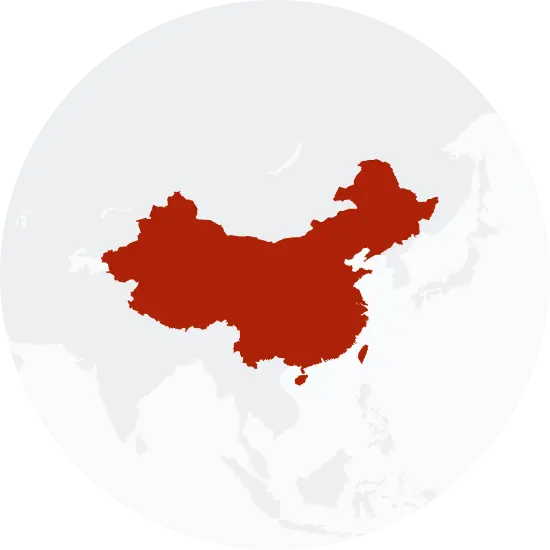Explore the Family Name Quan
How common is the last name Quan in the United States?
Based on the Decennial U.S. Census data, the popularity of the surname "Quan" has seen a significant increase between 2000 and 2010. In 2000, the surname ranked 5781, with a total count of 5478, representing about 2.03 people per 100k. By 2010, the rank had risen to 5397, with the count increasing to 6451, or roughly 2.19 individuals per 100k. This indicates a popularity increase of 6.64% in rank and a growth of 17.76% in total count over the decade.
| 2000 | 2010 | Change | |
|---|---|---|---|
| Rank | #5,781 | #5,397 | 6.64% |
| Count | 5,478 | 6,451 | 17.76% |
| Proportion per 100k | 2.03 | 2.19 | 7.88% |
Race and Ethnicity of people with the last name Quan
Regarding ethnic identity, data from the Decennial U.S. Census shows that most bearers of the surname "Quan" identify as Asian/Pacific Islander, with the percentage rising from 81.11% in 2000 to 82.70% in 2010. This represents an increase of almost 2%. The data also shows a noticeable rise of 13.79% in those identifying as American Indian and Alaskan Native, albeit from a much smaller base of 0.29% to 0.33%. Conversely, the proportion of those identifying as White and Black decreased by 20.13% and 17.89% respectively. Those identifying as Hispanic or of two or more races saw minor changes, with a slight decrease of 1.81% for Hispanics and a moderate increase of 6.28% for those of two or more races.
| 2000 | 2010 | Change | |
|---|---|---|---|
| Asian/Pacific Islander | 81.11% | 82.7% | 1.96% |
| White | 8% | 6.39% | -20.13% |
| Hispanic | 5.51% | 5.41% | -1.81% |
| Two or More Races | 4.14% | 4.4% | 6.28% |
| Black | 0.95% | 0.78% | -17.89% |
| American Indian and Alaskan Native | 0.29% | 0.33% | 13.79% |
Quan ancestry composition
23andMe computes an ancestry breakdown for each customer. People may have ancestry from just one population or they may have ancestry from several populations. The most commonly-observed ancestry found in people with the surname Quan is Chinese, which comprises 48.9% of all ancestry found in people with the surname. The next two most common ancestries are Vietnamese (12.8%) and Chinese Dai (7.3%). Additional ancestries include British & Irish, French & German, Korean, Spanish & Portuguese, and Japanese.
Ready to learn more about your ancestry? Get the most comprehensive ancestry breakdown on the market by taking our DNA test. Shop 23andMe
| ANCESTRY BREAKDOWN | COMPOSITION |
|---|---|
| Chinese | 48.9% |
| Vietnamese | 12.8% |
| Chinese Dai | 7.3% |
| Other | 30.9% |

Possible origins of the surname Quan
Your DNA provides clues about where your recent ancestors may have lived. Having many distant relatives in the same location suggests that you may all share common ancestry there. Locations with many distant relatives can also be places where people have migrated recently, such as large cities. If a large number of individuals who share your surname have distant relatives in a specific area, it could indicate a connection between your surname and that location, stemming from either recent ancestral ties or migration.
Based on 23andMe data, people with last name Quan have recent ancestry locations all within China.
| RECENT ANCESTRY Location | Percentage |
|---|---|
| Guangdong, China | 68.00% |
| Zhejiang, China | 56.00% |
| Fujian, China | 56.00% |
| Shandong, China | 54.70% |
| Shanghai, China | 54.70% |
What Quan haplogroups can tell you
Haplogroups are genetic population groups that share a common ancestor on either your paternal or maternal line. These paternal and maternal haplogroups shed light on your genetic ancestry and help tell the story of your family.
The top paternal haplogroup of people with the surname Quan is O-F1399, which is predominantly found among people with East Asian & Indigenous American ancestry. Haplogroup O-F1399 is descended from haplogroup O-M1359. Other common haplogroups include O-F8 and O-M88, which are predominantly found among people with East Asian & Indigenous American and East Asian & Indigenous American ancestry. Other surnames with similar common haplogroups are: Kwan, Fung, Guan, Lum, Yim, Tong, Chan, Lam, Huynh, Ly.
The most common maternal haplogroups of people with Quan surname are: F1a1, H, D4. These most commonly trace back to individuals of East Asian & Indigenous American and European ancestry.
 Paternal Haplogroup Origins O-M1359
Paternal Haplogroup Origins O-M1359
Your paternal lineage may be linked to the Cham
One of the many populations harboring members of haplogroup O1b1a1a1a1 is the Cham ethnic group, a group of people who speak Austronesian languages in Mainland Southeast Asia. Austronesian languages make up a language family that is extremely large and widespread, comprising over 350 million people on islands such as Madagascar, Easter Island, and many others. However, Austronesian languages are less common on mainland Asia, with a notable exception being the Chamic language. Research suggests that ancestors of the Cham people migrated from Southeast Asian islands to the mainland around the year 500 BCE, and that early Cham populations quickly began mixing with indigenous southern Vietnamese populations. As a result, the Chamic language now has words that were borrowed from languages spoken by indigenous Vietnamese people. It is likely that an ancestral Kinh population was one of the populations that mixed with the Cham people shortly after their migration to mainland Asia.
Your maternal lineage may be linked to Marie Antoinette
Because it is so dominant in the general European population, haplogroup H also appears quite frequently in the continent's royal houses. Marie Antoinette, an Austrian Hapsburg who married into the French royal family, inherited the haplogroup from her maternal ancestors. So did Prince Philip, Duke of Edinburgh, whose recorded genealogy traces his female line to Bavaria. Scientists also discovered that famed 16th century astronomer Nicolaus Copernicus traced his maternal lineages to haplogroup H.

What do people with the surname Quan have in common?
Spoiler alert: it's complicated. People with the same last name are usually no more genetically similar than a randomly sampled group of people from the same population. That said, people with the same surname are more likely to have similar ancestries than randomly sampled individuals. The reason is the tendency of people with similar cultural or geographical backgrounds to preferentially mate with one another. That's why people who share a surname may be more likely to share traits and tendencies in common than people within the general population. Check out the percentages below to see the prevalences of tastes, habits, and traits of people with your surname compared with prevalences among 23andMe users.
Preferences
Traits
Habits
Wellness

Migraine
A severe headache characterized by intense pain, sensitivity to light and sound, and often accompanied by nausea and vomiting.
"Quan" Surname 9.1%
23andMe Users 16.4%
Are health conditions linked to the last name Quan?
The short answer is that, if there is an association between surname and health, it's usually more about your ancestry than your name. Individuals with a given surname are no more genetically similar than the general population but often have similar ancestries. The populations of people associated with those shared ancestries often have sets of genetic variations, also known as alleles, in common. Some of those alleles are associated with a greater likelihood of developing certain diseases.
Disease variant frequency by ancestry
Disease allele frequencies in populations associated with the surname Quan are shown below. Important Note: not everyone with a disease allele will develop these health condition









